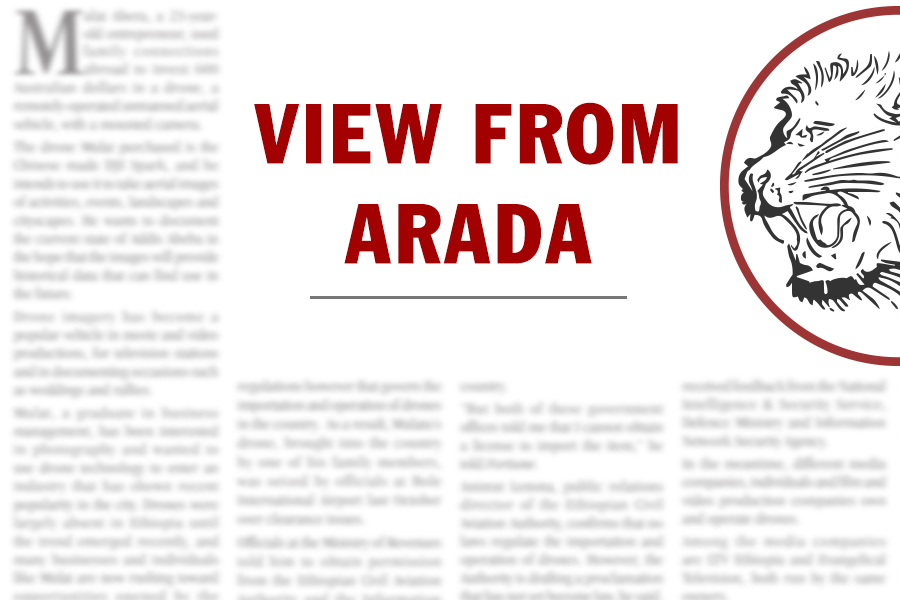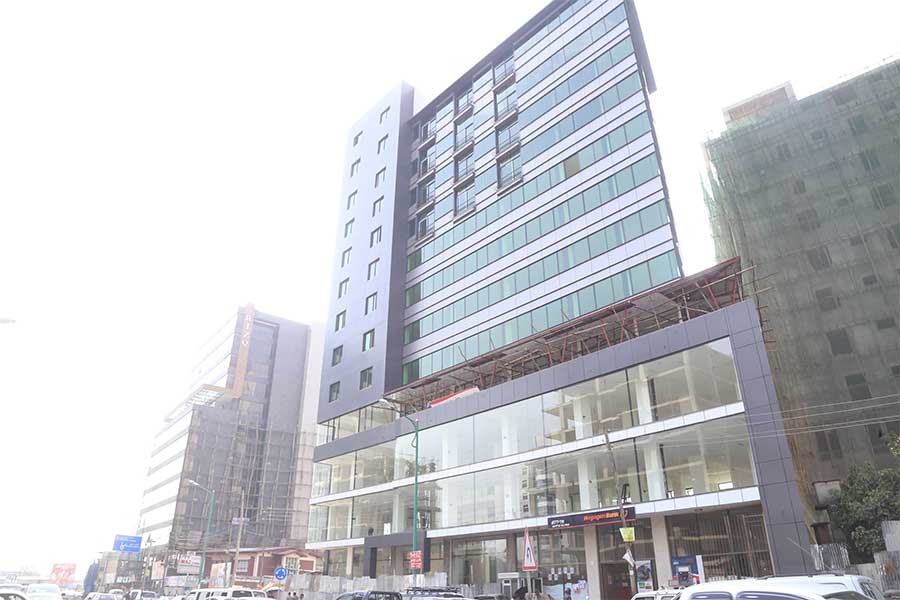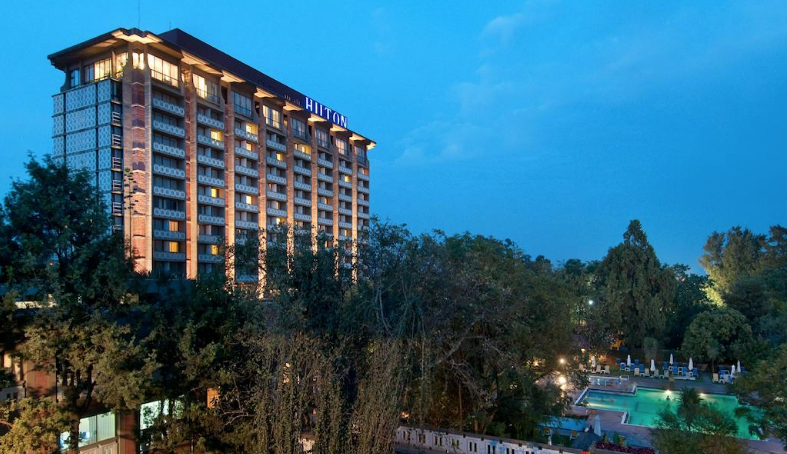
Feb 6 , 2021
By Eden Sahle
In a city like Addis Abeba, breaking and entering was always bound to be frequent given that there is wealth inequality. The troubling structural economic conditions, coupled with the adverse effects of the Novel Coronavirus (COVID-19) pandemic may have made matters worse.
A few weeks ago, my family was a victim of robbery, joining the pool of citizens reporting property crime and violence that left them physically and psychologically injured. Although we did not lose all that much property, previous reports of similar crimes were cause for alarm. More guards have been hired in the neighbourhood now, and the local police authorities – in Bole District near Addis Abeba International Airport – have assigned officers that make rounds in the area day and night.
Credit is due to the police. They conducted regular community meetings and checked on the civilian guards to ensure that they remained alert during their duty shifts. They went door to door, asking about security concerns and making sure everyone in the area feels safe.
This is not the case in every district, nonetheless. Friends and relatives that reside in places like Megenagna, Ayat, Sarebet andQera do not have similar engagements with their local police. Some have resorted to acquiring weapons to protect against intruders breaking into their homes and vehicles.
Just last week, a friend had his house broken into by men in the Ayatarea, also in Bole district. They jumped over the fence and detained their guard. They headed to their living room, taking out properties and moving it to the truck they brought with them. As they were inside the living room, the guard managed to free himself and call for help by blowing a whistle. With household items already loaded off by that point, they drove off.
The longer such problems persist, the more emboldened organised crime will be. The city administration must recognise this serious challenge and nip it in the bud.
As communities work together to improve surveillance and to enhance safety, police should step up preventive measures. Areas and neighbourhoods known for the predominance of crime should be prioritised equally as those areas known for safety to offer help where it is required.
The frequency of premeditated crimes in an increasingly dangerous number of ways and in several parts of the city should be cause for alarm to law enforcement bodies. Before now, a robbery was perpetrated by individuals using unsophisticated gear to break and enter. It has evolved now to the point where they make use of vehicles.
Crime cannot be eliminated, but its rate can be reduced, especially considering the higher level of poverty in Ethiopia, where about a fifth of the population lives under this designation. This is not something that law enforcement bodies would be capable of addressing on their own. Crime is not merely just a consequence of failing to put more boots on the ground. It is as well a matter of failing to address economic inequalities within society. Here, nothing will ever be a good enough substitute for reducing unemployment and underemployment.
But law enforcement bodies also ought to recognise that the burden of protecting lives and the properties of the city’s residents lies on their shoulders as underlying economic problems are addressed. They should step up the task of developing approaches to combat crimes and keep the public safe. They should actively and effectively execute prevention systems in collaboration with communities who are doing more than what they should be expected to.
The key benefit of law enforcement is to reduce criminal activities and assist victims of crime while making sure law and order is respected in all areas. Given the extensive range of causes of crime, preventive measures addressing the fundamental triggers can have a tremendous impact on public safety.
Timely intervention can prevent additional costs for the city and offer strong protection for the public. The more robbery patterns are put to an end sooner than later, the more criminal activities can be stopped before they cause harm. There is no better way of doing this than engaging the community in law enforcement efforts.
PUBLISHED ON
Feb 06,2021 [ VOL
21 , NO
1084]


View From Arada | Oct 19,2019

Commentaries | Jan 09,2021

Featured | Jan 05,2020

Fortune News | May 04,2019

Radar | Jun 15,2024

Viewpoints | Jul 01,2023

Commentaries | May 29,2021

Viewpoints | Jun 24,2023

Radar | Jun 19,2021

My Opinion | 131981 Views | Aug 14,2021

My Opinion | 128369 Views | Aug 21,2021

My Opinion | 126307 Views | Sep 10,2021

My Opinion | 123925 Views | Aug 07,2021

Dec 22 , 2024 . By TIZITA SHEWAFERAW
Charged with transforming colossal state-owned enterprises into modern and competitiv...

Aug 18 , 2024 . By AKSAH ITALO
Although predictable Yonas Zerihun's job in the ride-hailing service is not immune to...

Jul 28 , 2024 . By TIZITA SHEWAFERAW
Unhabitual, perhaps too many, Samuel Gebreyohannes, 38, used to occasionally enjoy a couple of beers at breakfast. However, he recently swit...

Jul 13 , 2024 . By AKSAH ITALO
Investors who rely on tractors, trucks, and field vehicles for commuting, transporting commodities, and f...

Jul 5 , 2025
Six years ago, Ethiopia was the darling of international liberal commentators. A year...

Jun 28 , 2025
Meseret Damtie, the assertive auditor general, has never been shy about naming names...

Jun 21 , 2025
A well-worn adage says, “Budget is not destiny, but it is direction.” Examining t...

Jun 14 , 2025
Yet again, the Horn of Africa is bracing for trouble. A region already frayed by wars...

Jul 6 , 2025 . By BEZAWIT HULUAGER
The federal legislature gave Prime Minister Abiy Ahmed (PhD) what he wanted: a 1.9 tr...

Jul 6 , 2025 . By YITBAREK GETACHEW
In a city rising skyward at breakneck speed, a reckoning has arrived. Authorities in...

Jul 6 , 2025 . By NAHOM AYELE
A landmark directive from the Ministry of Finance signals a paradigm shift in the cou...

Jul 6 , 2025 . By NAHOM AYELE
Awash Bank has announced plans to establish a dedicated investment banking subsidiary...